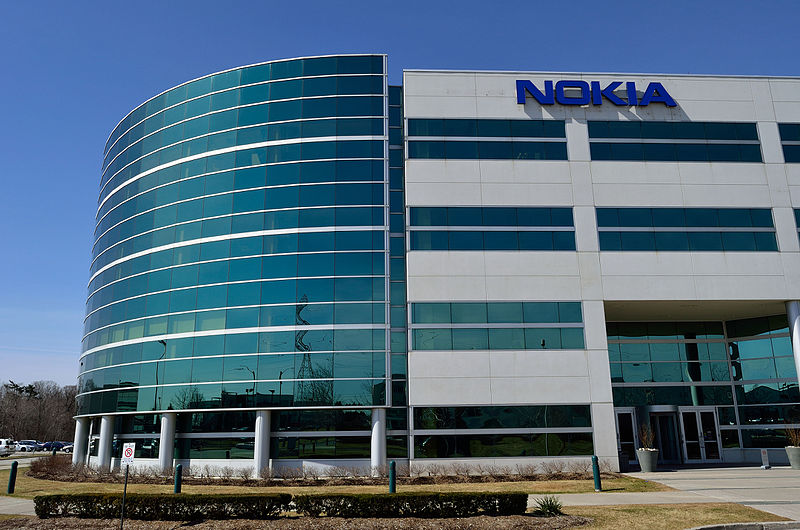Nokia’s Bell Labs Consulting has teamed up with Saudi Telecom Group (stc) to launch an innovative generative AI solution aimed at optimizing the deployment of new services on stc’s network. This collaboration marks a significant step towards reducing operational costs and accelerating time-to-market for next-generation services, positioning both companies at the forefront of leveraging artificial intelligence to enhance telecom networks.
Generative AI: A Game-Changer for Telecom Network Management
The new generative AI solution unveiled by Nokia and stc is designed to streamline and automate key aspects of service deployment, ultimately driving down costs and improving efficiency. By using advanced AI algorithms, the technology can intelligently predict and model service scenarios, significantly reducing the time traditionally required for planning, development, and deployment. This innovation allows stc to bring new services to market faster and with less manual intervention, driving improved operational agility.
Generative AI has the potential to transform network management by using historical data to generate highly accurate simulations of network behavior, service performance, and customer demand. This, in turn, enables telecom operators to optimize network resources and improve service delivery in real time. For stc, the collaboration with Nokia Bell Labs marks a crucial move towards enhancing its network capabilities to support the growing demands of 5G and beyond.
Strategic Focus on Cost Reduction and Speed
One of the primary goals of this collaboration is to reduce the overall cost structure for stc’s operations, particularly in the areas of network expansion and service rollout. Traditional methods of service introduction often require significant manual effort, expertise, and time to assess network needs, design services, and execute changes. With the new generative AI solution, these processes can be automated, enabling stc to deliver services faster and more efficiently.
This cost-saving approach is especially important as telecom operators, like stc, face increasing pressure to meet the demands of digital transformation while maintaining profitability. By adopting AI-driven solutions, stc can achieve higher levels of automation and optimization, ultimately lowering the cost of service delivery and improving customer experience.
Enhancing Network Performance for 5G and Future Technologies
The generative AI solution developed by Nokia Bell Labs and stc is not just about streamlining operations; it is also about enhancing the overall performance of the network. By leveraging AI to monitor and adjust network parameters in real time, stc can ensure that its network is optimized for high-performance applications, such as 5G, Internet of Things (IoT), and enterprise services.
As 5G networks roll out globally, telecom operators are faced with new challenges related to capacity, coverage, and quality of service. The ability to quickly adapt and respond to these challenges is critical to ensuring seamless experiences for customers and businesses alike. Through AI-powered automation, stc can efficiently manage its network’s performance, ensuring that it can handle increased traffic, higher speeds, and greater service demands associated with 5G and future technologies.
The Broader Implications for the Telecom Industry
Nokia Bell Labs’ collaboration with stc Group underscores the growing role of artificial intelligence in transforming telecom networks. The potential of AI, particularly generative AI, to streamline network operations, improve service deployment, and optimize performance cannot be overstated. As more telecom operators embrace AI-driven solutions, it is expected that the technology will play a key role in the future of network management and service delivery.
The strategic partnership also highlights the growing importance of collaboration between industry giants and telecom operators. By working together, Nokia and stc are not only advancing the capabilities of stc’s network but also setting a precedent for the wider telecom industry. As AI technology continues to evolve, its impact on telecom networks will become even more pronounced, offering new opportunities for operational efficiency, customer satisfaction, and technological innovation.
Looking Forward: A New Era for Telecom Networks
With the telecommunications industry increasingly focused on adopting next-generation technologies like 5G, artificial intelligence will be at the heart of these advancements. The collaboration between Nokia Bell Labs and stc Group is a timely example of how AI can be leveraged to improve network efficiency, enhance service offerings, and reduce operational costs. As generative AI continues to evolve, the potential applications for telecom operators like stc and Nokia are vast, offering exciting opportunities for the future of network management.
By embracing AI technologies now, stc is not only positioning itself as a leader in the Middle East but also as a key player in the global telecom market. This collaboration with Nokia Bell Labs reflects the growing recognition of AI’s transformative potential and its critical role in shaping the future of telecom services. With more operators expected to follow suit, the integration of AI into telecom networks is poised to redefine how services are delivered, optimized, and experienced by customers worldwide.
References:
- Nokia Press Releases – Visit Nokia’s official website or newsroom for official announcements and updates on their collaborations.
- stc Group News – Check stc Group’s official website for information on their partnerships and technological innovations.
- Tech News Websites – Websites like TechCrunch, Network World, or Light Reading often cover developments in telecommunications, AI, and industry collaborations.
- AI and Telecom Industry Reports – Reports and insights from consulting firms like McKinsey & Company, Deloitte, and PwC also provide valuable perspectives on the impact of AI in telecom.



